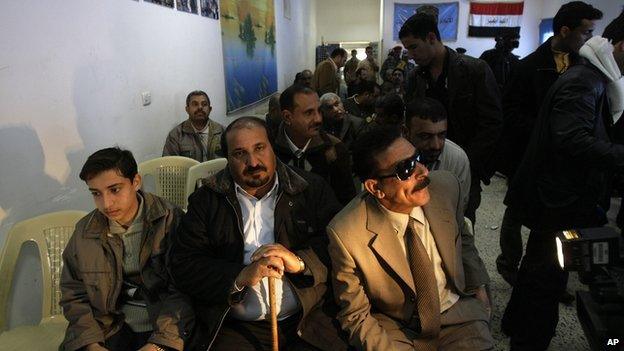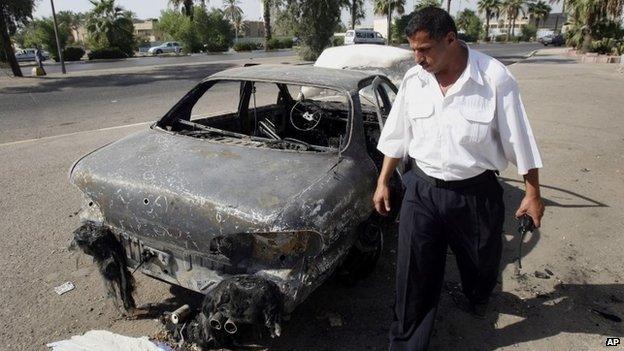Blackwater four 'lied about Iraq killings'
- Published

Relatives of victims attended a hearing in 2008
Four Blackwater security guards accused of killing 14 Iraqis lied about why they opened fire, a US court has heard.
The employees of the security company said insurgents were present but it wasn't true, the jury was told.
The shootings at Baghdad's Nisoor Square in 2007, which wounded 18, sparked international outrage.
One of the guards is accused of first-degree murder, while the others face charges of voluntary manslaughter. They deny all charges.
Prosecutors say the Blackwater guards harboured deep hostility toward Iraqis and boasted of indiscriminate firing of their weapons.
In opening statements in Washington, DC, Assistant US Attorney T Patrick Martin said after they carried out the shootings, they lied and said insurgents had been in the area.
"That lie that they had begun that day would unravel within moments", he said, because two Army officers arrived on the scene and saw what had really happened.
Some of the victims were "simply trying to get out" of the way of gunfire, Mr Martin said.
"Fourteen died, 18 injured. For what?" he said.

A car in the square was left destroyed by the attack
Lawyers for the Blackwater defendants say they acted in self-defence and they will call on witnesses to testify about the general threat level in Baghdad at the time.
Another expert witness will testify that for a contractor to respond with deadly force to a perceived threat does not require absolute proof that the threat was imminent or deadly.
The US State Department, which hired Blackwater, took four days to arrive and the investigation was incomplete and haphazard, set on clearing blame, says Mr Martin.
The State Department has made no comment.
Nicholas Slatten denies first-degree murder. Paul Slough, Evan Liberty and Dustin Heard deny voluntary manslaughter, attempted manslaughter and gun charges.